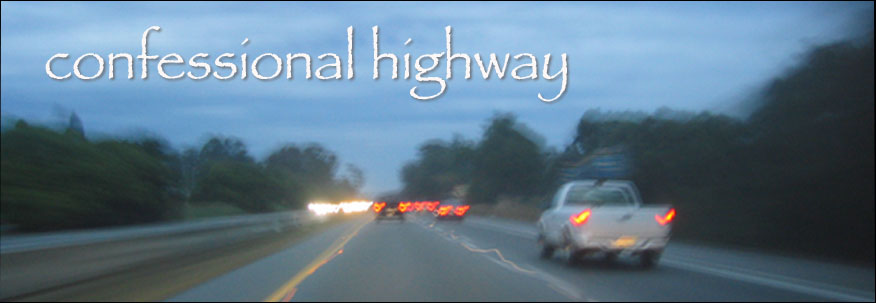Unlike many, I enjoy attending films alone, to fully immerse myself in the drama onscreen and leave my present life behind. So, with a free night, I head to the movies.
A Guide to Recognizing Your Saints. I know little of the film, having seen the trailer but not recalling much beyond a hint of the movie’s intensity. I vaguely remember a blurb touting its merits. That’s enough for me. I prefer to arrive at a theater blind, not wanting advance knowledge to spoil the unfolding adventure.
It’s Saturday night and I sit along the center aisle of the theater, a room decently populated for an indie film with minor marketing. A couple arrives and climbs over me to take seats at the end of my row just as the opening credits begin.
The film moves powerfully through a harsh and intense depiction of life in Queens, New York in the 80s, a coming-of-age tale of the writer and his friends navigating their world and their friendships, the impact of violence a central focus of the film. Late into the movie, the man in my row turns to his date and starts complaining. “Two free nights and I’m not about to waste one watching…” I don’t know how he ends the sentence as I try to refocus my ears to the screen.
But he continues to talk in a full voice as if he were sitting in his own living room, unconcerned with the theater of people around him. And while I try to tune him out, he draws my attention – and others’ – away from the screen. A guy sitting two rows ahead turns and asks the offending talker to be quiet.
And the drama begins.
The man in my row rises, and I assume he’s on his way out of the theater. Instead, he climbs over me, walks two rows forward, and slides up to the guy who asked for his silence. He gets right down in the seated viewer’s face, his large standing stature undeniably intimidating. Focus in the room shifts to this scene, an odd parallel to the violence and tension on the screen.
The guy beside the husher tries to enter the conversation, but burly dude silences him with, “I’m not talking to you!” At this point others in the theater beg the guy to back off, but anyone who speaks to him just becomes the next object of his rage.
I’m shocked by the escalation of the incident, and can’t stand how this man is dominating the room. In favor of justice, I, too, call for his silence. He walks briskly towards me, leans over, and counters, “I paid as much for my ticket as everyone else, so I have just as much right to talk!”
Huh?
Where in the fine print does a ticket allow you to talk? How about, a ticket allows you to sit silently in a theater and enjoy – or hate – a film? To speak in a full voice? I don’t think so.
At this point investing even one more second in this guy is going to completely take me out of the film, so I let it go. But my heart is racing. I’m not sure whether it’s a response of fear – he does have at least a hundred pounds on me – or a rush of internal glee in standing up to a bully.
He leaves the theater. His date quickly follows, though if body language means anything, she was disgusted and embarrassed by his behavior. She certainly didn’t seem to be on his side.
The movie ends, highlighting the devastating effects of violence. As the lights come up, everyone near me is still stunned by the incident in the theater.
“The message of the film was definitely lost on that guy,” I say to those sitting across the aisle from me. Nods of agreement, accompanied by the words, “I’ll say.”
The two guys who took on Mr. Burly – older teenagers, to my surprise – walk up the aisle towards me.
“You shouldn’t have had to deal with that guy,” I say. “He was a real jerk.”
“Maybe I was wrong to say something,” the husher says sheepishly. He looks truly shaken.
“No. You did us all a favor. He was being a jerk,” I respond.
But he just shrugs. “Now I’ll have to talk to him,” he says, with real concern on his face.
“Nah, I’m sure he left,” I say, convinced he stormed out.
But when I leave the theater, I see I’m wrong. The dude is standing opposite the two teenagers who cower against the wall as a theater employee is trying to calm down the angry patron. A crowd hovers at a safe distance, amazed by this guy’s behavior and soaring outrage. His date is long gone. Word has it that she left in a hurry without him.
He asks to see the manager.
“I am the manager,” the employee responds. The irate man then asks for his superior, and they walk away as I overhear the manager say something about contacting the theater chain via a website.
The people filling the lobby certainly wouldn’t typically linger after a film, but the car-crash spectacle of the event has grabbed onlookers willing to come to the defense of the teens as well as to debrief like those who have suffered intense turbulence on a flight, eager to share their experience of the incident. The man takes a few more verbal swipes at patrons on his way out. At this point, we mostly shake our heads.
I walk over to the manager, fueled by a desire to assure him that the guy was a jerk and that the kids – despite their lingering feelings of guilt – had done nothing wrong.
And then it’s all over.
I hesitate before leaving the theater, cautious that the angry man could still be walking to his car, not certain I want to encounter him alone on the street. I wonder what sets a man off like that, why the anger that resides in him is so easily sparked, why it can’t die down. And despite all the violence that was played out on the screen, the incident in the movie theater resonates more.
I am fortunate to have a life where violence plays such a peripheral role. I imagine how different I would be if I encountered such events – or worse – daily, how I would learn to look upon everyone with suspicion, how I would always be prepared to fight or defend myself. The most heartening aspect of the night was the way the theatergoers bonded together. The most frightening, the way one man could put a room full of strangers on edge.
Nothing in that theater compares to the global tensions of our day. But if such a minor event can lead to such aggression, I do wonder how we can possibly begin to tackle the larger issues.
Tags:


6 comments:
Do you think the angry man could have been convinced to hush with out angering him?
what a poignant dissertation of the events. so many folks are walking around in incredible amounts of pain, and it comes out in all sorts of devastating ways...and i fear it is only getting worse, the harder it gets, living on this planet together.
glad you were safe, and i love that you were looking out for those kids.
I have spent years dealing with violence, professionally. I still don't always understand where it comes from, although I have come to believe that in many cases it springs from a sense of entitlement, versus just pain.
I used to be a lot more sympathetic than I am these days. I've seen people engage in incredibly selfish and violent acts that deprive other humans of their health, safety, and future life. It is sickening.
Sometimes, I think that other people, when they encounter violent folks, are encouraged to assume responsibility for that other person's actions, when in actuality, some of these violent explosive folks have learned that violence is a tool they have used to get their way and frighten/manipulate other people for long periods of time. And I'm all for people standing up to bullies. I think everyone acted appropriately, and that individual is responsible for his own temper and violence.
I hate when people talk during a movie and that man didn't have any right to speak in full voice in the theater. He was ready to fight before he even got there. I'm always blind-sided when I witness people carrying that much rage inside and let it burst forth. I always think of it as a lesson on how I should not live my life. I would have done the same thing, engaged that jack ass and then been cautious about where he was afterwards.
I guess not the most relaxing evening! It's amazing that one person could have such a negative effect. In some ways, it illustrates that agression actually does give one power. This also raises for me the question of how to do the 'right thing' or de-escalate a situation when one party is irrational. Makes everything much trickier.
This is my first visit here (thanks Neil) and I'm blown away. What a powerful post.
Post a Comment